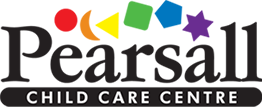Administering of Medications and Medical Conditions
In a group care situation, one of the most troublesome problems is to control the spread of infection amongst children and educators. Every step possible is taken to prevent the spread of illness and infection.
It is generally accepted that seriously ill children will be excluded from the centre, although policies for the exclusion of mildly ill children are controversial and variable.
The reasons why children are excluded when they are sick are:
• to ensure that the child’s comfort is met by one on one contact.
• to prevent cross infection of other children; and
• to prevent cross infection of staff.
When children are sent home, especially children that are suspected by educators to have a communicable disease, parents need to take their child to a medical practitioner and obtain a medical clearance, clearing their child to be free of any contagions, before the child is able to re-enter the centre.
This precaution is in place to prevent the spread of infectious diseases to other children and educators in the centre.
Pearsall Child Care Centre aims to provide a safe environment for all enrolled children.
We ensure that the administering medications to children is carefully monitored to reduce any risk to the health and wellbeing of the child.
Staff at Pearsall Child Care Centre are not medically trained and therefore cannot diagnose appropriate treatment, consequently staff will not;
- Administer medications to children without written consent from the child’s parent/ guardian.
- Administer non-prescribed medications that are required for more than one day without written medical authority.
- Perform any treatments without first receiving appropriate professional training.
- Accept children into the service who require a care regime which uses medical procedures, before staff are appropriately and professionally trained, and feel confident and comfortable with that training and the process for administering any required medication.
- Accept a child with additional needs without a risk minimisation plan being completed on the enrolment of the child.
- Accept a child for care without their prescribed special needs medication.
Administering of Medications
- Firstly, if medication needs to administered to a child, parents/ guardians should consider whether their child is well enough to attend the service, or whether they should take their child home.
- In order to maintain high quality care and to reduce the spread of infection educators will also assess the child and whether they appear fit for care upon filling out a medication form with families.
- Any expired medications will not be administered.
- A medication form must be filled out by the parent/ guardian and signed before medication of any sort will be administered to the child by a qualified educator.
- Only Diploma trained educators with a first aid qualification, are able to administer medication to children.
- Medication will only be given as per the instructions on the label or as advised in writing from the families GP.
- No- prescribed medications (over the counter medications) that are authorised by the child’s parent/ guardian and are applicable to the child’s age, in the original packaging with clear dosage instructions, and within the expiry date of the medication will be administered for ONE day only per WEEK.
- A letter from the child’s doctor will be required if a child needs a non-prescribed/ over the counter medication for a longer period of time. The letter will need to state the name of the over the counter medicine, the specified length of time it is required and that the child is fit for child care and not contagious to others.
- Where a child is unwell to the point of requiring more than one medication, that child will be deemed unfit for child care, unless a medical certificate from the child’s doctor is obtained, it must state that the child is fit for child care and is not contagious.
Asthma and Anaphylaxis*
If a child is diagnosed to be asthmatic or anaphylactic an action plan must be drawn up with the child’s GP prior to commencing care. This action plan will be discussed with the child’s family and educators before the child commences care.
*The full version of this policy and it procedures can be viewed and discussed with management upon orientation at the service.
Children with Additional Needs
We believe in providing children with additional needs every opportunity to reach their full potential in an integrated setting. Pearsall Childcare staff strive to provide an inclusive environment where tolerance and diversity is valued. We embrace, respect and accept children and families from all cultures, religions and lifestyles.
Pearsall Child Care Centre promotes open, positive lines of communication with families, as we believe that families have the right to be heard. We encourage any feedback from families and take this feedback into consideration when programming, updating policies and in general every day running of the centre.
